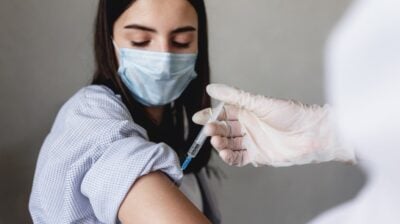How to deal with erectile dysfunction
It can be a very distressing problem, but there’s always help available

It can be an embarrassing topic to discuss, but erectile dysfunction (ED) affects plenty of men throughout the course of their lifetimes. Although more common for men aged 40 and over, it’s a natural concern for young men to have, and recent research has shown that more under 40s suffer from the condition than had previously been thought.
What is Erectile Dysfunction?
Erectile Dysfunction is defined as the inability to get or maintain an erection.
Erections happen when the penis becomes full of blood. After sexual stimulation, chemical messages are sent from the brain through your nerve supply, telling blood vessels in the penis to let blood in. Increased blood flow causes the penis to harden and an erection happens. The male sex hormone testosterone is needed for normal erections.
If it doesn’t, or if the blood doesn’t remain there for long enough, the penis becomes flaccid. There are varying degrees of ED, from inconsistent and short-lived erections to what is known as ‘complete ED’, where the penis doesn’t become erect at all.
The causes of Erectile Dysfunction
ED can have a range of causes, both physical and emotional/psychological.
Physical causes
Often, ED can be symptomatic of a broader health problem, such as:
- High blood pressure
- High cholesterol
- Hormonal problems
- Cardiovascular disease
- Diabetes
- Nerve disorders (such as Multiple Sclerosis)
- Surgery or injury
By-and-large, the problems mentioned above either lead to a weak flow of blood to the penis, or a narrowing of small arteries which are meant to carry the blood.
Lifestyle factors such as excessive smoking, drinking, drug use and weight gain can cause ED, and it can sometimes come about as a side-effect of taking certain medications like high blood pressure medication.
Emotional causes
- Stress
- Depression
- Anxiety
- Relationship problems
These can stem from problems with your partner, a stressful period in your personal life, or a lack of sexual desire associated with emotional withdrawal. It’s important to take all of these factors into consideration if you’re concerned about ED.
If you feel you might be experiencing it as a result of a broader physical condition or illness, or that the problem is persisting despite your own efforts to rectify it, be sure to contact a medical professional who will talk you through treatment options.
Do young people experience Erectile Dysfunction?
While the incidence of ED increases with age, it’s perfectly possible to struggle with the issue at any age post puberty. It’s thought that while only around 2% of those under 40 experience complete ED, a lack of research and statistics means it’s pretty difficult to gauge how many younger people suffer from milder forms of the condition. However, results published by The Journal of Sexual Medicine last year indicated that out of a sample of 439 males of all ages, 26% of those who presented with symptoms of ED were under 40.
Erectile Dysfunction, impotence and infertility- are they the same?
ED is sometimes referred to as impotence, and it’s usually treatable. However, impotence does not necessarily mean you’re infertile, as some people may think. Although occasionally linked, it’s by no means always the case that someone who experiences ED has a diminished sperm count, which is associated with infertility.
Diagnosing Erectile Dysfunction
If you’ve had ED for a few weeks, you should go to your GP for a check-up. Don’t worry, it’s nothing to be embarrassed about. Your GP will probably ask you questions about your symptoms, as well as carrying out a physical exam. The doctor may also ask about your overall physical and mental health, your alcohol consumption, whether you take drugs, or whether you are currently taking any medication.
How is it treated?
Erectile dysfunction is primarily treated by tackling the cause of the problem, whether this is physical or psychological. Depending on the cause the following treatments are available:
- Lifestyle changes. Drinking less and eating healthier is often the first step to tackling ED.
- Statins which help to lower cholesterol.
- Viagra and other stimulants, depending on what your doctor decides to prescribe (NEVER order knock-off Viagra online, it’ll end badly, trust us!)
- Cognitive Behavioural Therapy. This can help get to the root of the problem on a psychological level.
- Sex therapy. Information and advice from a sexual therapist may help a client explore ways around the difficulties they’re experiencing.
Remember that in the Republic of Ireland the legal age of sexual consent is 17, and in Northern Ireland it is 16.






